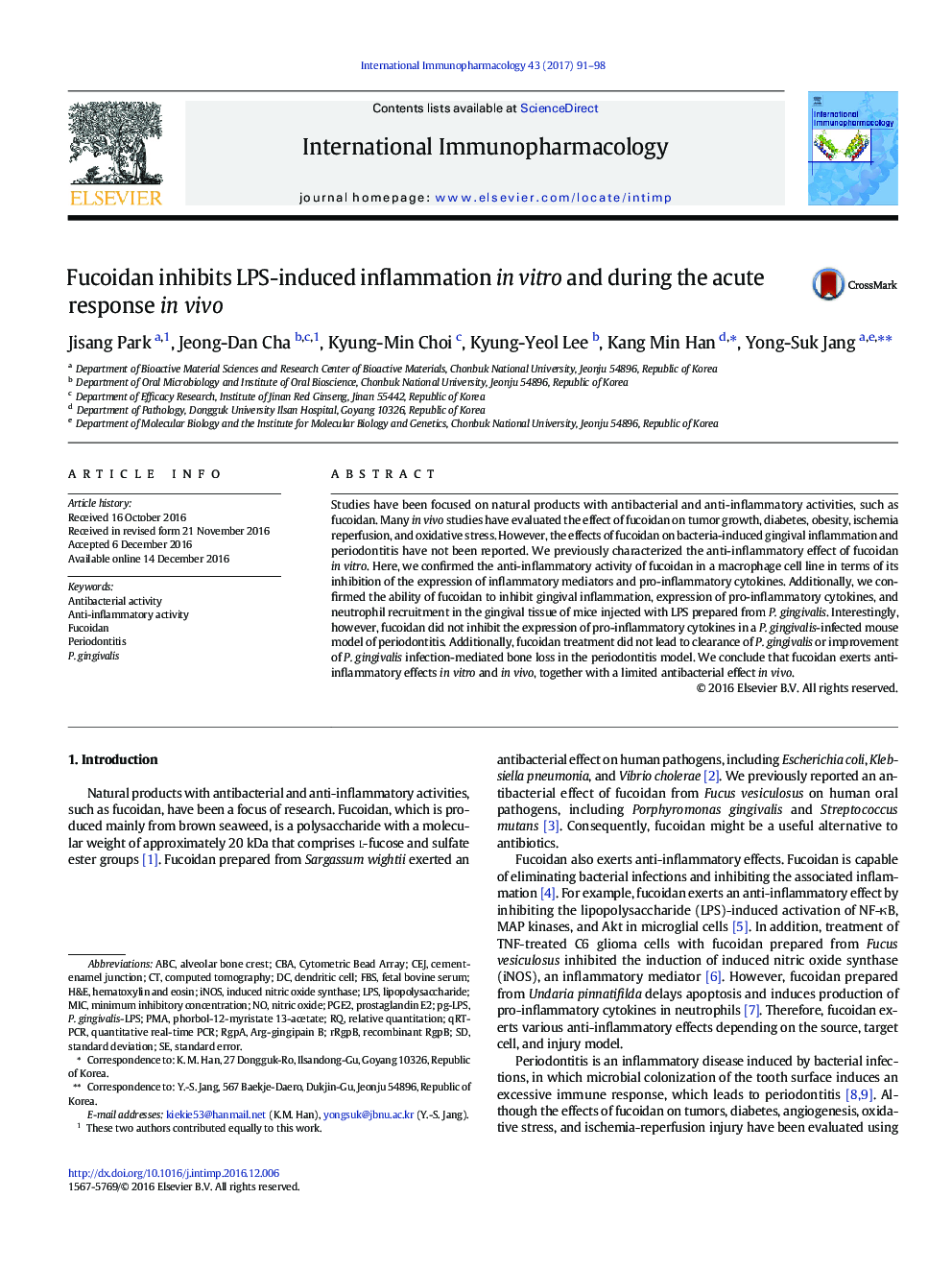| Article ID | Journal | Published Year | Pages | File Type |
|---|---|---|---|---|
| 5555370 | International Immunopharmacology | 2017 | 8 Pages |
â¢Effects of fucoidan on bacteria-induced gingival inflammation have not been reported.â¢We confirmed the anti-inflammatory activity of fucoidan in macrophage cell line.â¢Fucoidan inhibited inflammation in the gingival tissue of LPS-injected mice.â¢Fucoidan treatment did not clear P. gingivalis in the periodontitis model.â¢We conclude that fucoidan exerts anti-inflammatory effects in vitro and in vivo.
Studies have been focused on natural products with antibacterial and anti-inflammatory activities, such as fucoidan. Many in vivo studies have evaluated the effect of fucoidan on tumor growth, diabetes, obesity, ischemia reperfusion, and oxidative stress. However, the effects of fucoidan on bacteria-induced gingival inflammation and periodontitis have not been reported. We previously characterized the anti-inflammatory effect of fucoidan in vitro. Here, we confirmed the anti-inflammatory activity of fucoidan in a macrophage cell line in terms of its inhibition of the expression of inflammatory mediators and pro-inflammatory cytokines. Additionally, we confirmed the ability of fucoidan to inhibit gingival inflammation, expression of pro-inflammatory cytokines, and neutrophil recruitment in the gingival tissue of mice injected with LPS prepared from P. gingivalis. Interestingly, however, fucoidan did not inhibit the expression of pro-inflammatory cytokines in a P. gingivalis-infected mouse model of periodontitis. Additionally, fucoidan treatment did not lead to clearance of P. gingivalis or improvement of P. gingivalis infection-mediated bone loss in the periodontitis model. We conclude that fucoidan exerts anti-inflammatory effects in vitro and in vivo, together with a limited antibacterial effect in vivo.
